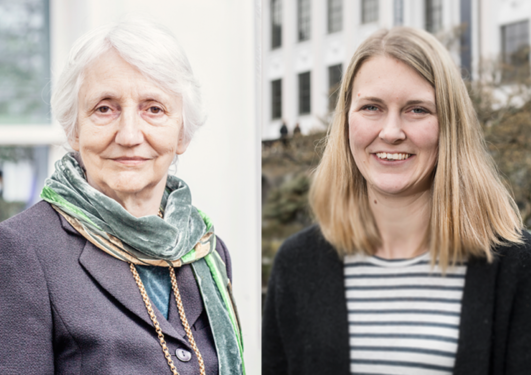The Holberg Symposium 2017: Ethics for Communication
Bør ytringsfriheten også beskytte ytringer og tekster som skader, undergraver eller forvrenger kommunikasjon?

Main content
Should freedom of expression protect speech and writing that damage, undermine or distort communication?
At this year's Holberg Symposium, held in the honour of Onora O'Neill, five prominent speakers will discuss issues related to the ethics of communication.
Many classical approaches to the ethics of communication stress the rights of speakers and writers, but are reticent about the needs of their audiences and readers. This emphasis can seem unproblematic if we take it for granted that the main threats to communication lie in the repressive use of power to censor or silence speech, which have been central issues for classical (and contemporary) arguments for freedom of expression. Those arguments see freedom of speech and of the press as supporting forms of check and challenge that can hold power to account.
These classical arguments may have lost some of their grip in a world in which a great deal of content is produced and disseminated in ways that bypass, and even undermine, the traditional disciplines of communication, including those specific to journalism, publishing and broadcasting. It has become harder for readers, listeners and viewers to check or challenge what they read, hear or see, or to judge its sources or its credibility. Can democracy be sustained in an era whose technologies are so hospitable to almost instantaneous mass circulation of uncheckable material, ranging from on line advertising, to ‘fake news’, to black propaganda, to counteraccusations that well-sourced and evidenced claims are faked? Will the swirling circulation of free-floating content undermine democratic citizenship? What do we now need to do in order to sustain democracy? Would it help to place more emphasis on the central ethical standards and disciplines for communicative acts—for example on standards of honesty and trustworthiness—rather than reducing the ethics of communication to freedom to disseminate content?
Symposium Programme
9.00 AM–9.03 AM
Welcome by Professor Sigmund Grønmo, Chair of the Holberg Board
9.03 AM–9.10 AM
Opening remarks by Professor Ellen Mortensen, Moderator and Academic Director of the Holberg Prize
9.10 AM–10.55 AM
Session 1
Steven Barnett - Professor of Communications, University of Westminister: "Culture versus Ethics"
Jonathan Heawood - Chief Executive Officer, Impress, the Independent Monitor for the Press CIC: “Communication and Collective Action”
Laura Valentini - Associate Professor of Political Science, London School of Economics: “Audience Responsibilities”
10.55 AM–11.15 AM
Coffee break
11.15 AM–12.20 PM
Session 2
Rowan Cruft - Senior lecturer in Philosophy, University of Stirling: “Whose Ethics?”
Rae Langton - Professor of Philosophy at Newnham College, University of Cambridge: “Post-Truth as Post-Democracy”
Q&A
12.45 PM–1.30 PM
Lunch break before the Holberg Lecture. A light meal will be served for the audience inthe back of the University Aula.
